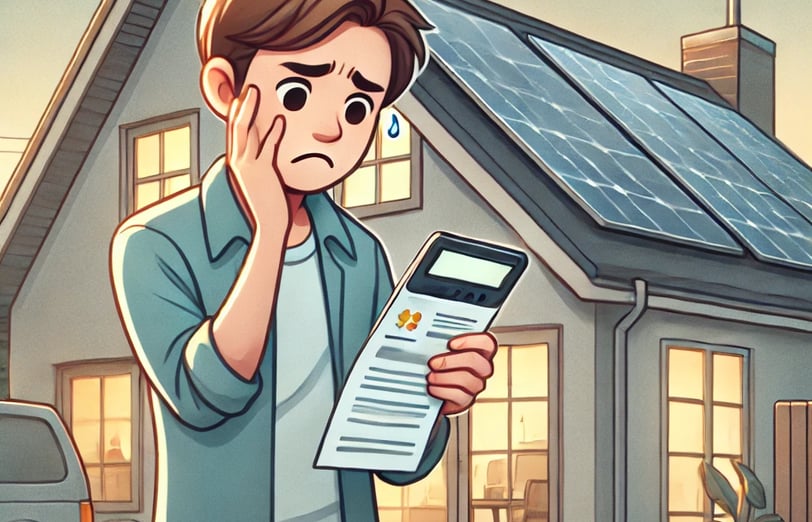System Review - Understanding Your Solar System's Performance: Why You Might Still Have a Power Bill
You've invested in solar panels, and now you're expecting to say goodbye to your utility bill. That’s the ideal scenario, right?
7/18/20242 min read
Understanding Your Solar System's Performance: Why You Might Still Have a Power Bill
You've invested in solar panels, and now you're expecting to say goodbye to your utility bill. That’s the ideal scenario, right? While it's true that solar power can significantly reduce or even eliminate your electricity costs, there are several factors that can affect your unique situation. Seeing a power bill after going solar doesn’t automatically mean that your system isn’t working—it simply means there are variables at play that you should understand.
Factors That Impact Your Solar Energy Production
Solar panels generate electricity when the sun is shining, but various elements can impact their efficiency. These include:
Weather Conditions – Cloudy, rainy, or snowy days reduce sunlight exposure, meaning your system may produce less energy than expected.
Seasonal Changes – Shorter winter days mean fewer daylight hours, leading to lower production compared to summer months.
Shading Issues – Trees, buildings, or debris on the panels can obstruct sunlight and reduce output.
Panel Performance Issues – While uncommon, malfunctions or obstructions on one or more panels can decrease total system efficiency.
System Design & Orientation – The angle and direction of your panels impact how much sunlight they capture.
How Your Energy Usage Affects Your Bill
Your solar system was designed based on your past electricity consumption. However, if your energy habits have changed, this could lead to a shortfall in solar coverage. Common reasons for increased energy usage include:
Higher Appliance Usage – Running additional appliances, charging electric vehicles, or using more heating and cooling than before can increase demand.
New Household Members – More occupants generally mean higher energy consumption.
Increased Standby Power – Some electronics continue drawing power even when turned off.
Conducting a Solar System Performance Review
If you’re seeing higher-than-expected electricity bills, a comprehensive energy audit can help pinpoint the cause. Here’s what to check:
Your Solar Proposal & Contract – Review the original quote provided at the time of purchase. It includes assumptions about energy usage and estimated production.
Utility Bills from the Past Year – Comparing past consumption patterns to current usage helps identify trends.
Solar Monitoring Data – Most systems come with monitoring tools to track daily, monthly, and annual production.
By analyzing these factors, we can determine whether your system is underperforming due to external conditions or if there’s a deeper issue that needs to be addressed.
Get an Independent Energy Audit
If you're unsure whether your system is producing as promised, an independent energy audit can provide clarity. Our experts at Solar GuidePro can assess your installation, usage trends, and system monitoring to ensure you're getting the most out of your solar investment.
Reach out today for more information on our energy audits and system reviews. Let’s ensure your solar panels are working efficiently and delivering the savings you expect!


